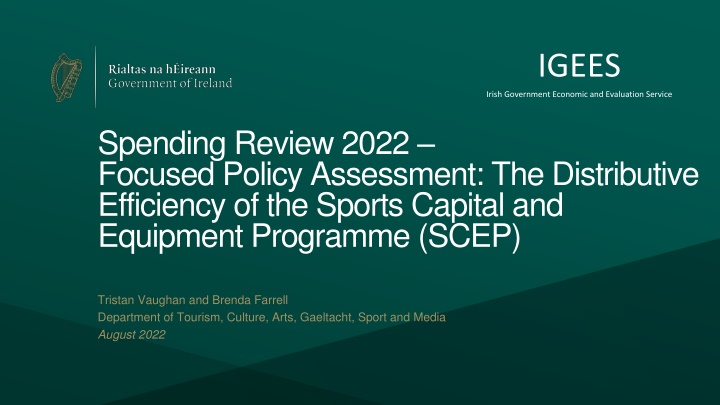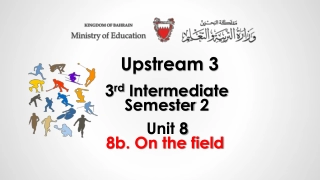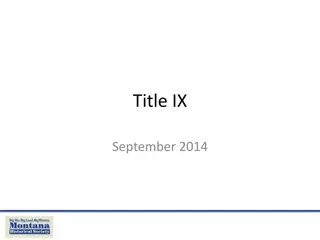
Distributive Efficiency of Sports Capital Programme Review
The Irish Government Economic and Evaluation Service conducted a focused policy assessment on the Sports Capital and Equipment Programme (SCEP) to determine its distributive efficiency. The review analyzed the funding allocations, policy objectives, application trends, and grant awards to evaluate if the SCEP aligns with national sports policies and targets disadvantaged areas. Key findings suggest a positive impact, indicating the need for continued capital funding to support Ireland's sporting infrastructure.
Download Presentation

Please find below an Image/Link to download the presentation.
The content on the website is provided AS IS for your information and personal use only. It may not be sold, licensed, or shared on other websites without obtaining consent from the author. If you encounter any issues during the download, it is possible that the publisher has removed the file from their server.
You are allowed to download the files provided on this website for personal or commercial use, subject to the condition that they are used lawfully. All files are the property of their respective owners.
The content on the website is provided AS IS for your information and personal use only. It may not be sold, licensed, or shared on other websites without obtaining consent from the author.
E N D
Presentation Transcript
IGEES Irish Government Economic and Evaluation Service Spending Review 2022 Focused Policy Assessment: The Distributive Efficiency of the Sports Capital and Equipment Programme (SCEP) Tristan Vaughan and Brenda Farrell Department of Tourism, Culture, Arts, Gaeltacht, Sport and Media August 2022
Spending Review 2022 Overview, Aims & Objectives Overview The Sports Capital and Equipment Programme (SCEP) is the primary vehicle for Government support for the development of sports and physical recreation facilities and the purchase of non-personal sports equipment throughout the country. Over 13,000 projects have now benefited from this funding since 1998, bringing the total allocations in that time to over 1.15 billion. Funding for the 2020 SCEP has significantly increase on previous rounds. Approximately, 166 million was allocated to roughly 2,900 applications for the 2020 SCEP round. The Programme s objectives are to support sporting bodies in maximising participation in sport and/or improve performance, to prioritise the needs of disadvantaged areas, and groups traditionally underrepresented in sport and to encourage the sharing of sporting facilities. Aims and Objectives Ireland s formation of policy in the area of Sports, has greatly expanded in recent years and the method used to award the SCEP grants has evolved to better cater for these new policies. Therefore, it is now appropriate to assess if the SCEP has been achieving the objectives of these policies, and using this experience to inform future policy development. This focused policy assessment aims to assess the distributive efficiency of the Sports Capital and Equipment Programme (SCEP), by reviewing the policy context for the SCEP and analysing the trends in SCEP applications and grants awarded, to determine if the SCEP is providing funding to the areas targeted by the National Sports Policy. This analysis will also identify any learnings which may be used to improve the Department s appraisal, management and delivery of the SCEP or other similar programmes in the future, and contribute to the mid-term review of the National Sports Policy, which is due in 2023. 2 Rialtas na h ireann | Government of Ireland
Spending Review 2022 Key Findings Key Policy Relevant Findings Capital funding is required to ensure the continued viability of Ireland s sporting infrastructure. Accordingly, the increasing levels of SCEP funding under the 2020 SCEP have enabled a significantly higher % of applicants to be awarded a grant. The SCEP objectives are appropriate when compared to the objectives of the National Sports Policy (NSP) 2018-2027, while the key policy areas of the NSP have been found to have many similarities with international sports policies. There has been a higher rate of successful grants in 2020, 2017 and 2018 compared to the previous SCEP rounds and this is primarily due to a drop in invalid applications. The total amounts of funding and grants for the 2000-2018 SCEP compare relatively well to each county s respective population size. The 2020 SCEP has shown increasing levels of demand within both disadvantaged and severely disadvantaged areas. However, it could be argued that scope remains to further increase the volume of applications from severely disadvantaged areas. 3 Rialtas na h ireann | Government of Ireland
Spending Review 2022 Key Findings Key Policy Relevant Findings Continued The analysis suggests that the level of SCEP investment (in terms of SCEP funding and grant numbers) in disability groups and key sports for those with a disability is relatively low. The proportion of SCEP funding has increased in 2018 and 2020, but the analysis finds that within the current parameters of the programme, high proportions of SCEP funding are not attainable for disability groups. The proportion of SCEP grants and funding has been trending upwards for all the female sports examined, since the schemes inception. However, Camogie, ladies football, swimming and hockey all remain minority sports (in terms of SCEP funding and grant numbers), some sports types favoured by females are limited in the funding they receive by the SECP parameters, and membership data for the 2020 SCEP shows that the sporting organisations receiving SCEP investment have significantly higher proportion of male members than female members. However, it is important to note that females participate in sporting organisations other than those referenced above, and many of these organisations receive significant investment from the SCEP, which benefits all members of the organisation. Recommendations It is the Author s view that the implementation of an evaluation framework will lead to an improvement in both the evaluation and monitoring of the SCEP objectives and provide a systematic framework for data collection in order to enhance future research in the areas of SCEP efficiency and effectiveness (impact). It would be beneficial to undertake a demand analysis to ascertain the level of funding required to meet current and future levels of demand from sporting organisations, sport types and cohorts of the population that have traditionally been unrepresented in sport. Another potential option that should be examined is the introduction of more specific rounds of the SCEP, which focus on specific objectives of the programme, for example, increasing female participation. 4 Rialtas na h ireann | Government of Ireland






















